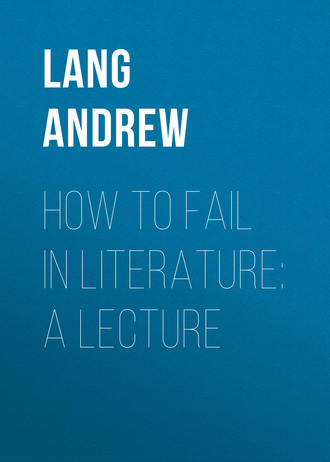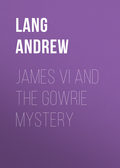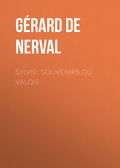
Lang Andrew
How to Fail in Literature: A Lecture
Excellent, but does this apply to every kind of literary art? What would become of Montaigne if you blew away his allusions, and drove him out of “the allusive way,” where he gathers and binds so many flowers from all the gardens and all the rose-hung lanes of literature? Montaigne sets forth to write an Essay on Coaches. He begins with a few remarks on seasickness in the common pig; some notes on the Pont Neuf at Paris follow, and a theory of why tyrants are detested by men whom they have obliged; a glance at Coaches is then given, next a study of Montezuma’s gardens, presently a brief account of the Spanish cruelties in Mexico and Peru, last —retombons à nos coches– he tells a tale of the Inca, and the devotion of his Guard: Another for Hector!
The allusive style has its proper place, like another, if it is used by the right man, and the concentrated and structural style has also its higher province. It would not do to employ either style in the wrong place. In a rambling discursive essay, for example, a mere straying after the bird in the branches, or the thorn in the way, he might not take the safest road who imitated Mr. Pater’s style in what follows:
“In this way, according to the well-known saying, ‘The style is the man,’ complex or simple, in his individuality, his plenary sense of what he really has to say, his sense of the world: all cautions regarding style arising out of so many natural scruples as to the medium through which alone he can expose that inward sense of things, the purity of this medium, its laws or tricks of refraction: nothing is to be left there which might give conveyance to any matter save that.” Clearly the author who has to write so that the man may read who runs will fail if he wrests this manner from its proper place, and uses it for casual articles: he will fail to hold the vagrom attention!
Thus a great deal may be done by studying inappropriateness of style, by adopting a style alien to our matter and to our audience. If we “haver” discursively about serious, and difficult, and intricate topics, we fail; and we fail if we write on happy, pleasant, and popular topics in an abstruse and intent, and analytic style. We fail, too, if in style we go outside our natural selves. “The style is the man,” and the man will be nothing, and nobody, if he tries for an incongruous manner, not naturally his own, for example if Miss Yonge were suddenly to emulate the manner of Lever, or if Mr. John Morley were to strive to shine in the fashion of Uncle Remus, or if Mr. Rider Haggard were to be allured into imitation by the example, so admirable in itself, of the Master of Balliol. It is ourselves we must try to improve, our attentiveness, our interest in life, our seriousness of purpose, and then the style will improve with the self. Or perhaps, to be perfectly frank, we shall thus convert ourselves into prigs, throw ourselves out of our stride, lapse into self-consciousness, lose all that is natural, naif, and instinctive within us. Verily there are many dangers, and the paths to failure are infinite.
So much for style, of which it may generally be said that you cannot be too obscure, unnatural, involved, vulgar, slipshod, and metaphorical. See to it that your metaphors are mixed, though, perhaps, this attention is hardly needed. The free use of parentheses, in which a reader gets lost, and of unintelligible allusions, and of references to unread authors – the Kalevala and Lycophron, and the Scholiast on Apollonius Rhodius, is invaluable to this end. So much for manner, and now for matter.
The young author generally writes because he wants to write, either for money, from vanity, or in mere weariness of empty hours and anxiety to astonish his relations. This is well, he who would fail cannot begin better than by having nothing to say. The less you observe, the less you reflect, the less you put yourself in the paths of adventure and experience, the less you will have to say, and the more impossible will it be to read your work. Never notice people’s manner, conduct, nor even dress, in real life. Walk through the world with your eyes and ears closed, and embody the negative results in a story or a poem. As to Poetry, with a fine instinct we generally begin by writing verse, because verse is the last thing that the public want to read. The young writer has usually read a great deal of verse, however, and most of it bad. His favourite authors are the bright lyrists who sing of broken hearts, wasted lives, early deaths, disappointment, gloom. Without having even had an unlucky flirtation, or without knowing what it is to lose a favourite cat, the early author pours forth laments, just like the laments he has been reading. He has too a favourite manner, the old consumptive manner, about the hectic flush, the fatal rose on the pallid cheek, about the ruined roof tree, the empty chair, the rest in the village churchyard. This is now a little rococo and forlorn, but failure may be assured by travelling in this direction. If you are ambitious to disgust an editor at once, begin your poem with “Only.” In fact you may as well head the lyric “Only.” 4
ONLY
Only a spark of an ember,
Only a leaf on the tree,
Only the days we remember,
Only the days without thee.
Only the flower that thou worest,
Only the book that we read,
Only that night in the forest,
Only a dream of the dead,
Only the troth that was broken,
Only the heart that is lonely,
Only the sigh and the token
That sob in the saying of Only!
In literature this is a certain way of failing, but I believe a person might make a livelihood by writing verses like these – for music. Another good way is to be very economical in your rhymes, only two to the four lines, and regretfully vague. Thus:
SHADOWS
In the slumber of the winter,
In the secret of the snow,
What is the voice that is crying
Out of the long ago?
When the accents of the children
Are silent on the stairs,
When the poor forgets his troubles,
And the rich forgets his cares.
What is the silent whisper
That echoes in the room,
When the days are full of darkness,
And the night is hushed in gloom?
’Tis the voice of the departed,
Who will never come again,
Who has left the weary tumult,
And the struggle and the pain. 5
And my heart makes heavy answer,
To the voice that comes no more,
To the whisper that is welling
From the far off happy shore.
If you are not satisfied with these simple ways of not succeeding, please try the Grosvenor Gallery style. Here the great point is to make the rhyme arrive at the end of a very long word, you should also be free with your alliterations.
LULLABY
When the sombre night is dumb,
Hushed the loud chrysanthemum,
Sister, sleep!Sleep, the lissom lily saith,
Sleep, the poplar whispereth,
Soft and deep!
Filmy floats the wild woodbine,
Jonquil, jacinth, jessamine,
Float and flow.
Sleeps the water wild and wan,
As in far off Toltecan
Mexico.
See, upon the sun-dial,
Waves the midnight’s misty pall,
Waves and wakes.
As, in tropic Timbuctoo,
Water beasts go plashing through
Lilied lakes!
Alliteration is a splendid source of failure in this sort of poetry, and adjectives like lissom, filmy, weary, weird, strange, make, or ought to make, the rejection of your manuscript a certainty. The poem should, as a rule, seem to be addressed to an unknown person, and should express regret and despair for circumstances in the past with which the reader is totally unacquainted. Thus:
GHOSTS
We met at length, as Souls that sit
At funeral feast, and taste of it,
And empty were the words we said,
As fits the converse of the dead
For it is long ago, my dear,
Since we two met in living cheer,
Yea, we have long been ghosts, you know,
And alien ways we twain must go,
Nor shall we meet in Shadow Land,
Till Time’s glass, empty of its sand,
Is filled up of Eternity.
Farewell – enough for once to die —
And far too much it is to dream,
And taste not the Lethæan stream,
But bear the pain of loves unwed
Even here, even here, among the dead!
That is a cheerful intelligible kind of melody, which is often practised with satisfactory results. Every form of imitation (imitating of course only the faults of a favourite writer) is to be recommended.
Imitation does a double service, it secures the failure of the imitator and also aids that of the unlucky author who is imitated. As soon as a new thing appears in literature, many people hurry off to attempt something of the same sort. It may be a particular trait and accent in poetry, and the public, weary of the mimicries, begin to dislike the original.
“Most can grow the flowers now,
For all have got the seed;
And once again the people
Call it but a weed.”
In fiction, if somebody brings in a curious kind of murder, or a study of religious problems, or a treasure hunt, or what you will, others imitate till the world is weary of murders, or theological flirtations, or the search for buried specie, and the original authors themselves will fail, unless they fish out something new, to be vulgarised afresh. Therefore, imitation is distinctly to be urged on the young author.
As a rule, his method is this, he reads very little, but all that he reads is bad. The feeblest articles in the weakliest magazines, the very mildest and most conventional novels appear to be the only studies of the majority. Apparently the would-be contributor says to himself, or herself, “well, I can do something almost on the level of this or that maudlin and invertebrate novel.” Then he deliberately sits down to rival the most tame, dull, and illiterate compositions that get into print. In this way bad authors become the literary parents of worse authors. Nobody but a reader of MSS. knows what myriads of fiction are written without one single new situation, original character, or fresh thought. The most out-worn ideas: sudden loss of fortune; struggles; faithlessness of First Lover; noble conduct of Second Lover: frivolity of younger sister; excellence of mother: naughtiness of one son, virtue of another, these are habitually served up again and again. On the sprained ankles, the mad bulls, the fires, and other simple devices for doing without an introduction between hero and heroine I need not dwell. The very youngest of us is acquainted with these expedients, which, by this time of day, will spell failure.





